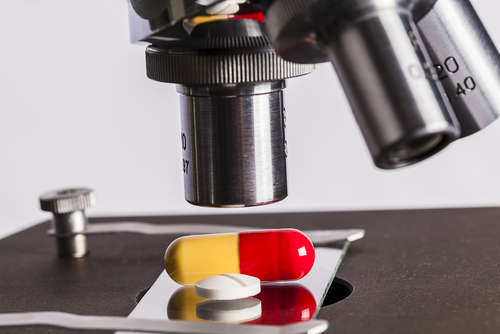Study Finds Emicizumab Safe, Effective in Patients with Severe Hemophilia A

The safety and efficacy of emicizumab in patients with severe hemophilia A (HA) were recently evaluated in a study, “Factor VIII–Mimetic Function of Humanized Bispecific Antibody in Hemophilia A,” published in The New England Journal Of Medicine.
Hemophilia A is caused by a lack of blood clotting factor VIII that participates in blood coagulation. This induces bleeding problems that may result in fatigue, severe anemia, and weakness. One of the standard utilized therapies for HA is the regular administration of prophylactic and episodic intravenous infusions of factor VIII.
“The goals of prophylaxis with factor VIII are to increase factor VIII activity to at least a moderate level (1 to 5 IU per deciliter) and to reduce bleeding episodes and joint damage,” the authors wrote.
These treatments, however, have several drawbacks, especially for children and patients with poor venous accessibility. They could also induce production of the anti-factor VIII alloantibodies (factor VIII inhibitors), which makes the treatment with factor VIII inefficient.
Another drug called emicizumab (ACE910) was developed to overcome these problems. “Emicizumab has been shown to have in vivo hemostatic activity in a nonhuman primate model of acquired hemophilia A; it also has been shown to have limited adverse effects in healthy volunteers after a single subcutaneous administration of 1 mg or less per kilogram of body weight,” the authors wrote.
In the study, the researchers assessed the safety, pharmacokinetics, and pharmacodynamics of emicizumab administrated to patients with severe HA either with or without factor VIII inhibitors, at the weekly basis through subcutaneous injection. They also evaluated the ability of emicizumab in preventing bleeding.
A total of 18 Japanese patients with severe HA either with or without factor VIII inhibitors were included in the study. The patients were given weekly doses of 0.3, 1.0, or 3.0 mg of emicizumab (cohorts groups 1, 2, and 3, respectively) per kilogram of body weight for 12 weeks through subcutaneous injections.
The results revealed that emicizumab induced neither serious side effects nor abnormalities related to blood coagulation. The emicizumab levels in the plasma rose as the administrated dose of the drug increased. The blood coagulation levels measured through activated partial-thromboplastin times were found shorter.
Also, the number of bleeds experienced by patients during a one-year period (median annualized bleeding rates) in the cohorts 1, 2, and 3 were reduced from 32.5 to 4.4; 18.3 to 0.0; and 15.2 to 0.0, respectively.
A large number of patients also experienced no bleeding (8 of 11 patients with factor VIII inhibitors vs. 5 of 7 patients without factor VIII inhibitors). As a result, frequent utilization of clotting factors to control bleeding was subsequently decreased. Finally, blood analysis of the patients revealed that no antibodies were developed against the medicine.
“This study showed that once-weekly subcutaneous administration of emicizumab as prophylaxis is safe and has the potential to reduce or prevent bleeding episodes in patients who have severe hemophilia A with or without factor VIII inhibitors,” the authors concluded.






